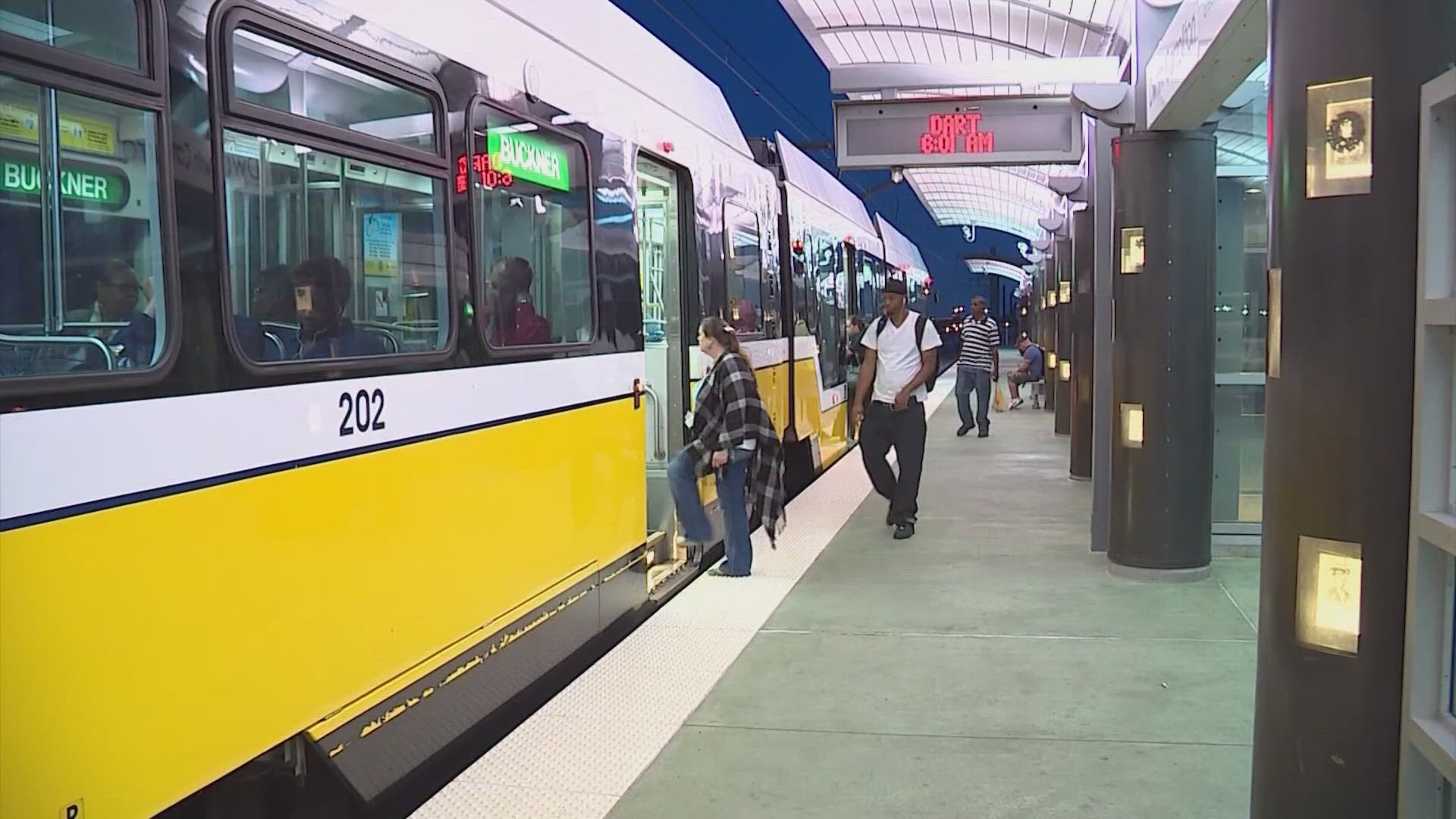IRVING, Texas — Two more cities could officially express their desire to cut the amount of sales tax revenue they send to Dallas Area Rapid Transit, a move a DART spokesperson warned could be "catastrophic" for the agency.
On Tuesday night, Carrollton and Farmers Branch are expected to vote on resolutions supporting sending three-quarters of a penny of sales tax to the agency instead of a full cent. Plano, Rowlett and Irving have all already voted to approve similar measures.
"The ridership is not there, the costs are continuing to go in. What are we getting on a return on our investment?" asked Irving Mayor Rick Stopfer. "What are we getting for those dollars?"
In his estimation, other cities that are not part of the DART consortium are free to use their sales tax money on other city priorities.
"We need more parks, we need more swimming pools, we need more libraries. All those things that other cities have committed that penny to," Stopfer said.
The vote to reduce funding is largely symbolic -- only the DART board itself can vote to start the process of cutting its own funding, explained agency spokesperson Jeamy Molina.
"That would be a catastrophic and just drastic cut to DART," she said. "Our passengers would have to wait 30, 45 minutes for any route across the service area."
Molina said the loss in funding would amount to $6 billion over 20 years and cause staffing and operations cuts to the agency. "It would be a huge, huge deal for our riders," she said.
DART has asked Irving and other cities to hold off on voting for the resolutions until the agency receives two reports currently underway -- one an Ernst and Young review of the cost allocation of current DART funding and the other a Council of Governments proposal for the future of regional transportation in DFW.
"When those two reports come out we’ll have so much more information that we can share with them and we can sit down and really discuss how we can move forward as a region," Molina said.
She said DART data showed it was back to 80 percent of its pre-pandemic ridership and only missed one percent of routes.
But Stopfer expressed doubt -- both in DART's willingness to change and the statistics themselves -- even as he insisted he supports the transit agency.
"The commitment was made to be part of DART and we’re fine with that," he said. "But the reality of it is that we have less service today, we have concerned citizens today and we’re paying 40 and 50 million dollars more today and still having those challenges."
He said he doubts DART will listen to the concerns. "We may get a little lip service but I don’t think they’ll be anything that really addresses the situation," he said.
DART spokesperson Molina said the agency wants to move forward as a region. "We want them to be at the table with us," she said.

